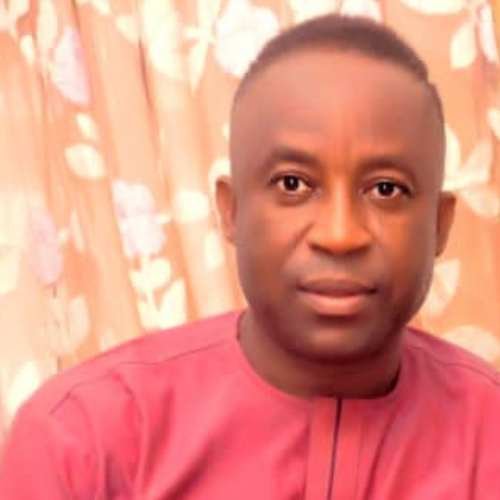Huge Setback: Oklahoma Sooners Head Coach Brent Venables Angrily Announces His Resignation and Departure Immediately After Facing…
In a stunning development that has left the college football world in shock, Oklahoma Sooners head coach Brent Venables has announced his resignation, effective immediately, following a heated series of events that have put the future of the program into serious question. Venables, who took over as head coach in 2022 with the goal of rebuilding Oklahoma’s defense and leading the team back to national prominence, abruptly stepped down after a turbulent season and intense internal and external pressures. His sudden departure marks a significant turning point for both Venables’ career and the Oklahoma football program, and it leaves many wondering what will come next for the storied Sooners.
Venables, who had built a reputation as one of the top defensive coordinators in the country during his time at Clemson, returned to Oklahoma in 2022 to replace Lincoln Riley, who left for USC in a move that sent shockwaves through the college football landscape. Initially, the hire of Venables was seen as a bold and promising move for the Sooners, with many anticipating a return to the team’s roots of tough, defense-first football. However, Venables’ tenure has been marred by underwhelming performances, unexpected losses, and growing dissatisfaction among both fans and insiders.
Here’s a closer look at the events leading up to Venables’ resignation, the internal and external pressures that may have contributed to the decision, and what’s next for the Oklahoma Sooners.
The Rocky Road to Venables’ Resignation
Brent Venables’ arrival at Oklahoma was initially met with high expectations. After all, Venables had earned a reputation as one of the most successful and well-respected defensive minds in college football, particularly during his time as Clemson’s defensive coordinator. Under his guidance, the Tigers’ defense became one of the most dominant in the country, and his reputation as a recruiter and tactician was widely admired.
However, his tenure as head coach at Oklahoma has not gone according to plan. Venables inherited a team that had just lost its longtime head coach, Lincoln Riley, and was dealing with a major transition period. Riley had left the program with a high-powered offense, but the defense was in dire need of an overhaul, something Venables was tasked with immediately.
In his first season in charge, Venables faced growing pains. While the Sooners’ offense remained explosive under quarterback Dillon Gabriel, the defense struggled to find consistency, especially in high-profile games. Oklahoma’s defense gave up an average of over 30 points per game in 2022, which was far below the expectations Venables had set for the program. The team finished with a disappointing 6-7 record, marking one of the worst seasons in Oklahoma’s recent history.
As 2023 unfolded, the pressure on Venables continued to mount. While the offense showed signs of improvement under offensive coordinator Jeff Lebby, the defense remained a liability. Oklahoma dropped several key games, including losses to rivals Texas and Kansas State, and fans began to grow increasingly frustrated with the lack of progress on that side of the ball. Venables’ commitment to defensive football seemed at odds with the team’s struggles, and many started questioning whether he was the right man to lead Oklahoma back to national relevance.
The tipping point came in a highly publicized loss to a struggling Texas Tech team, which sent shockwaves through the program. The defeat, which featured multiple defensive breakdowns and missed opportunities, highlighted the gap between Oklahoma’s talent and its performance on the field. Following the loss, Venables faced pointed criticism from fans, analysts, and even former players who questioned his leadership and whether he was the right fit for the job.
The Internal Pressures and Growing Frustration
While external pressure from fans and the media certainly played a role in Venables’ decision, it’s clear that internal factors also contributed to his departure. Sources within the program have suggested that there was significant dissatisfaction among the coaching staff and players regarding Venables’ leadership style and decision-making. Venables, known for his fiery demeanor and intense focus on defense, has reportedly clashed with other members of the coaching staff, particularly in terms of offensive strategy and overall program direction.
Oklahoma’s transition from Riley’s high-flying offense to a more balanced and defensive-focused approach under Venables created friction within the program. While Venables’ defensive philosophy was largely welcomed by the staff, there were concerns about the offensive play calling and the lack of emphasis on the high-powered offense that had made Oklahoma a perennial College Football Playoff contender in the years prior. Venables’ reluctance to fully embrace the offensive side of the ball and his insistence on building from the defense outward may have caused some discontent within the coaching staff and player ranks.
Additionally, sources have revealed that there was growing frustration among the team’s leaders, including star players on offense, who felt that the defense was not progressing as expected. Players were reportedly frustrated with the lack of improvement and the inconsistent coaching they were receiving, particularly on the defensive side. Some insiders suggested that certain key players were disillusioned with Venables’ leadership, and there were whispers of locker room discontent.
The tension boiled over after several poor performances, culminating in Venables’ emotional announcement that he was stepping down from his role as head coach. While he expressed regret over leaving, he also made it clear that he believed it was in the best interest of both himself and the program to part ways.
Venables’ Public Announcement: “Time for a Change”
In his resignation statement, Venables expressed disappointment but also a sense of finality. “After much reflection and consideration, I have decided that it’s time for a change,” Venables said in a statement that was released by the university. “I believe in the players, the coaching staff, and this program, but it has become clear to me that the vision I have for Oklahoma is no longer in alignment with the direction we are headed. This program deserves to compete for championships every year, and I feel that my departure will allow for the next chapter to begin.”
Venables’ resignation was notably abrupt, with little prior indication that such a decision was imminent. The announcement sent shockwaves through the fanbase, with many expressing disbelief and confusion over the timing of the decision. Just days before his resignation, Venables had expressed optimism about the team’s future and had been adamant that Oklahoma was on the right track despite the struggles.
However, the internal issues, combined with the mounting external pressure and criticism, ultimately led to a decision to step away from the role. It is believed that Venables had been in discussions with Oklahoma athletic director Joe Castiglione for several weeks, and the two ultimately decided that it was best for the program to part ways.
What’s Next for Oklahoma?
With Venables out, the big question now is: What’s next for Oklahoma football? The Sooners are left in a difficult position, as they must now search for a new head coach to guide the program through a crucial transition period. Oklahoma is set to enter the competitive SEC in 2024, and the stakes for the program’s success have never been higher.
Oklahoma will likely look for a coach who can balance the team’s offensive pedigree with the defensive expertise that Venables was known for. Names like Kansas State’s Chris Klieman, former NFL coach Sean Payton, and even former Oklahoma quarterback Josh Heupel (currently at Tennessee) have already been mentioned as potential candidates.
The Sooners will need to act quickly to ensure they can bring in a coach who can stabilize the program and rebuild the confidence of both the players and the fanbase. In the meantime, Oklahoma’s assistant coaches will likely take on interim roles, with the focus shifting to the remainder of the 2023 season.
Conclusion
Brent Venables’ resignation marks a huge setback for Oklahoma football, a program that once seemed poised for a bright future under his leadership. Despite his success as a defensive coordinator, Venables struggled to meet expectations as a head coach, facing internal and external pressure that ultimately led to his departure. As Oklahoma begins its search for a new head coach, the future of the program hangs in the balance, with fans hoping for a swift and successful recovery.


0 Comments